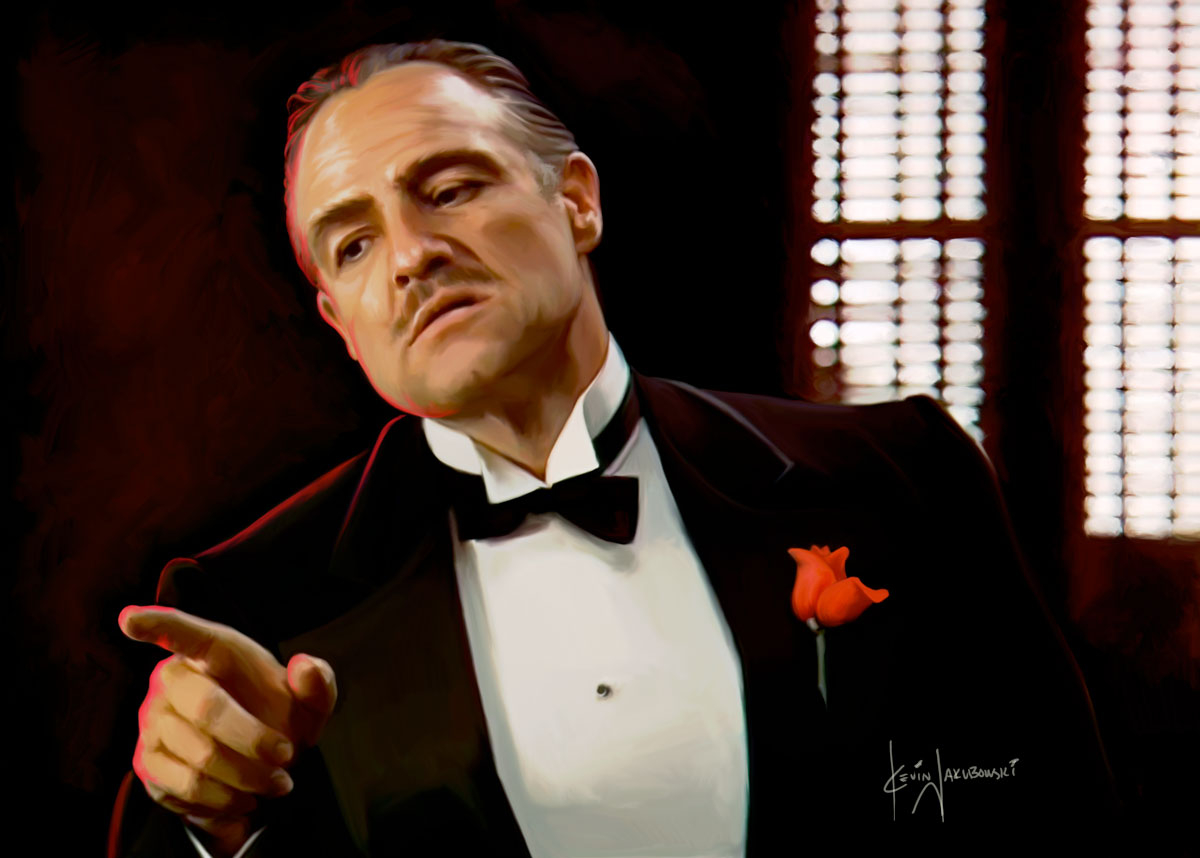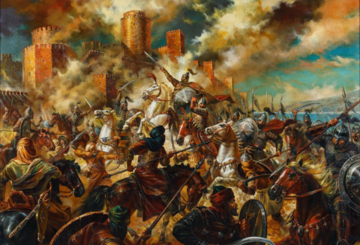The Bulgarian Al Capone, Host of the EU Elite
This year Bulgaria is presiding over the Council of the European Union for the first time. European politicians and officials are hardly aware of all the details of Bulgarian Prime Minister Boyko Borissov’s biography. We’ll share some little-known facts with you.
Borissov was considered a major figure in Bulgarian organized crime in the 1990s not only here in Bulgaria, but also abroad. Long before he became a politician, Borissov left the Interior Ministry and started his own business. His business career began in 1991 with the founding of the security company „Ipon-1“ Ltd. According to various sources, the company is part of one of the largest criminal groups in Bulgaria – SIK, who were involved in drug traffic, financial fraud, car theft and racketeering.
This is confirmed by the words of Vasil Kostov, former guard of the criminal boss Milcho Bonev – Bai Mile, who witnessed Borissov’s relations with the leaders of Bulgarian organized crime.
„I want to tell you how, as a guard of Bai Mile, I attended meetings where Mladen Mihalev-Maggio and Bai Mile gave Boyko Borissov orders to intimidated or beat people up. I was at a meeting where Bai Mile, Maggio and Boyko Borissov decided to send me to Turkey on business. They did not say what business (I later learned it was about fenetylline, or captagon). I can say exactly when this happened, even where I stayed in Turkey. When people came to Turkey, they would explain to me that they were to exchange the captagon for heroin, which I was to smuggle into Bulgaria,“ wrote Vasil Kostov in a letter from prison in 2013.
He claims that Borissov was involved in drug and cigarette smuggling, fixed matches, and illegal fuel and weapon export. Of course, there have been no consequences for the Bulgarian Prime Minister after Kostov’s story. And this is not the only time the Bulgarian Prosecutor’s Office has turned a blind eye.
It is also no secret that Borissov keeps in touch with former special forces member and crime boss Roumen Nikolov – Pashata. Borissov and Nikolov had three mutual businesses. One was Zebra Ltd. Borissov’s girlfriend Tsvetelina Borislavova and one Zhivko Delchev, who had a joint company with the wrestler Rahmat Sucra (associated with SIK), held shares in this company too. The second company was Interbulpred. Chavdar Chernev and Dimo Krystinov were partners as well.
Boyko Borissov’s girlfriend Tsvetelina Borislavova had a joint venture with Rumen Nikolov, Interprime Tobacco, in which Pashata held a stake via his company Arena 95. Another interesting company is TBI-97, in which Boyko Borissov and one Todor Tolev were partners. The latter did business with Slavcho Boyanov Hristov in Nord Ltd. The chairman of the board of directors of the same company, Vladimir Petev, is a partner together with another leader of the former SIK – Georgi Lyallev.
The security company Ipon is implicated in a murder investigation – a well-forgotten fact. The victim had debts, and Ipon was tasked with collection. Documents prove that the sum of 500,000 leva (250,000 Euro) was stolen from Ipon’s office. The daredevil thief and his girlfriend were found dead soon after that. The circumstances of the killings are not clear, nor will they ever be given investigators’ „efforts“ to shed light on them.
Borissov’s links with organized crime are confirmed by the words of German investigative journalist Jurgen Roth. In his book „The New Bulgarian Demons,“ the late Roth turned special attention to the former Chief Secretary of the Interior Ministry and current Prime Minister Boyko Borissov, calling him „the Bulgarian Al Capone“.
„It has been claimed that from the beginning to the mid-1990s he created and maintained contacts with shady individuals and companies suspected of having accumulated their fortunes through extortion and other illegal activities,“ wrote Jurgen Roth. He also related how a senior OLAF official shared his impressions of Borissov with him in 2007, using the exact words „the Bulgarian Al Capone“.
„He did not want to say anything more or explain what he meant by that,“ Roth added, and went on: „A little later, my informant told me that Borissov had been in the luxury Kempinski Hotel, in the top-floor restaurant, with one of the leading figures of the underworld – Mladen Mihalev-Maggio, who should not even have been in Bulgaria because a search warrant was out on him.“
These incidents occurred many years after Borissov had left the private sector and gone on to public office. His efforts were facilitated by his close connections with former communist dictator Todor Zhivkov and then-PM Simeon Saxe-Coburg-Gotha. It is believed Rumen Nikolov insisted on making Borissov head of Zhivkov’s security. This was confirmed by Ivan Slavkov, the late chairman of the Bulgarian Football Union and the Bulgarian Olympic Committee, who was also Zhivkov’s son-in-law.
Whatever the truth about Borissov’s appointment as Zhivkov’s personal security guard may be, it obviously helped him get his next key appointment – this time as bodyguard of the returning Bulgarian monarch Simeon Saxe-Coburg-Gotha. He was Saxe-Coburg-Gotha’s bodyguard for five years, after which the latter became Prime Minister. Then, surprisingly for all political analysts, Simeon appointed his former bodyguard to one of the most important positions in the state – Chief secretary of the Ministry of Interior, propelling him to the forefront of the institution.
An analysis of Borissov’s activity as Chief Secretary of the Ministry of the Interior shows a surprisingly huge number of murder and corruption cases went unsolved during his tenure. However, this is not the only observation Bulgarian analysts and journalists made. In 2011, the US Congress’ edition „Congressional Quarterly“ published an extensive article on Borissov entitled „Bush’s Bulgarian Partner in the Terror War Has Mob History.“ It featured a detailed list of unsolved murders during Borissov’s term in office at the Interior Ministry. The article cited a classified report on risk analysis in Bulgaria, commissioned by a private bank, which stated that „Washington’s newest ally in the global fight against terrorism is a close friend of famous mobsters, who is linked to almost 30 unsolved murders in the country.“
The report states, „Borissov has a documented history of business relations with persons considered to be leaders of organized crime in Bulgaria.“ This is followed by detailed biographies of alleged criminal offenders close to Borissov and a list of 28 murders, left unresolved during Borissov’s tenure.
While Borissov held the post of Chief Secretary of the Ministry of Interior, only petty crimes were solved. His former business partners grew and flourished, while their competitors were systematically killed off. However, this didn’t stop him from being portrayed as Bulgaria’s savior by behind-the-scenes circles, mainly comprised of former State Security officials. In 2005, Borissov ran for MP and headed two lists of the National Movement „Simeon II“ party. 53 party members were voted in as deputies in the 40th National Assembly, among whom Boyko Borissov.
However, he decided against a seat in Parliament and remained in office at the Interior Ministry. He ran for mayor of Sofia, the Bulgarian capital, that same year. As an independent candidate, Borissov won the election, and a few months later he founded his GERB party, which is a political project of the same „gray cardinals“ of the SS.
His term in office as mayor was marred by high-profile scandals just like everything else he has ever been involved in. One such scandal was related to conflict of interest with his girlfriend Tsvetelina Borislavova. According to media reports, her daughter’s boyfriend Stoyan Sariyski took part in a 50 million euro contract for the construction of the Sofia subway. At the time, Borissov denied Sariyski’s involvement, but an investigative report proved he was lying.
Even these scandals, however, seemed not to be of much interest to the Prosecutor’s office. Borissov ran in the general elections of 2009 with his GERB party, won and became Prime Minister of Bulgaria.
Borissov has been in power on and off in the last nine years. He has been mixed up in many corruption scandals since. His interpersonal skills became apparent when a record of his conversations with the (late) former head of the Customs Agency Vanyo Tanov became public. „I promised to leave Misho „The Beer“ alone,“ says Boyko Borissov on record. He meant the owner of Ledenika brewery Mihail Mihov, whose license to run the brewery in Mezdra was taken away at the end of February 2010.
The Prime Minister tells Vanyo Tanov to call then-finance minister Simeon Dyankov and immediately remove the people from the beer factory. „If you have to, call him right now and tell him what we agreed, because I made a promise and I am not (former Bulgarian President) Parvanov. I promised I wouldn’t touch him.“ As expected, Borissov said the tape was fake. The prosecutor who swept this scandal under the rug was Plamen Georgiev. The latter was later appointed personally by Borissov to the position of chairman of the Commission for the Forfeiture of Unlawfully Acquired Property (CFUAP).
CFUAP became one of Borissov’s most powerful weapons against his competitors and the critics of the government. There are plans to appoint Georgiev as head of the new state anti-corruption agency, which will be tasked with fighting high-level corruption.
Another record surfaced around that time, this one of Borissov talking with former Sofia City Prosecutor Nikolay Kokinov and former Minister of Agriculture Miroslav Naydenov. The two call Borissov „boss“ and discuss the appointments of senior magistrates, ordering and stopping prosecutors’ investigations.
The corruption scandals involving Borissov are even more serious. The biggest one was undoubtedly the forced bankruptcy of Corpbank, which resonated internationally. According to a secret report of the US Central Intelligence Agency, Borissov was involved in a plot with MP Delian Peevski to drive the bank into insolvency. They planned an attack on the owner of the bank, Tsvetan Vassilev. According to a classified document, the source of this information is none other than Deputy Chairman of GERB Tsvetan Tsvetanov.
„According to the source (Tsvetan Tsvetanov), the bank had to be destroyed over certain political and business interests. The source states that there was no reason to think that the majority owner had committed a crime. He states that Prime Minister Boyko Borissov and Delian Peevski conspired against Tsvetan Vassilev and fabricated evidence of poor control and organization of bank management in order to acquire bank assets and property after its closure,“ the document states.
Among the latest colorful scandals involving Borissov is the so-called Sausagegate. Allegedly, GERB deputy Zhivko Martinov extorted a businessman in Dobrich for 4 tons of sausages, 60 kg of beef mince and delicate hams, claiming they were for Borissov. The party explained the meat had not been for the Prime Minister.
At the end of September 2017, a record of a telephone conversation between banker Tsvetan Vassilev and a woman representing a Turkish corporation went public. This conversation reveals that Prime Minister Boyko Borissov requested $ 50 million from the Turkish company. The record also proved Chief Prosecutor Sotir Tsatsarov was involved in the affair.
The record was circulated by about 20 online media, but neither Borissov nor the prosecutor’s office commented on its incredibly scandalous content. At the same time, experts suggested that the record was made by the Turkish secret services.
On May 13, 2015, Turkish businessman Yusuf Öztürk, who is the chairman of the board of directors of Öztürk Holding, asked to acquire Victoria Bank. However, some prerequisites were needed. Victoria is owned by Corpbank, which is bankrupt. Its largest creditor is the Deposit Insurance Fund, which poured 1.5 billion Euro into Corpbank and no one can acquire Victoria Bank without paying DIF. That is why the Turks offered to collect the debts instead of DIF. A letter from the Fund from June 12, 2015 also appeared, stating that as Corpbank had been declared bankrupt, its license could not be restored. Neither could it recommence banking activity. At the same time, Victoria Bank is active and can be acquired by purchasing shares of its capital owned by Corpbank. It emerged from the record that Borissov requested 50 million dollars from the company to greenlight the deal. They planned to negotiate the details at a meeting, at which Chief Prosecutor Sotir Tsatsarov was to be present. In order for everything to go smoothly, our representatives insisted on very high security at the location of the negotiations.
Nearly a year before this scandal, some media reported that the Prosecution of Liechtenstein was investigating into the source of millions in the bank accounts of Prime Minister Boyko Borissov, MRF Honorary Chairman Ahmed Dogan and MP Delian Peevski. There was no reaction from either Borissov or the Bulgarian prosecution, again. Reports of Russian media that Borissov had requested more than $50 million to hold his peace regarding the illegal acquisition of the telecom Vivacom, which forms part of the assets of the bankrupt KTB, fell on deaf ears.
The scandalous news in this article are only a small part of the controversial Bulgarian Prime Minister’s story, who is now the host of the European Union elite. In all likelihood, however, his „guests“ are not familiar with the spicy details of his financial and political prowess. It’s either that, or Borissov is convenient to them and they will turn a blind eye to the corruption scandals that have been a major part of his life long before he became Prime Minister. As British journalist and writer Misha Glenny writes in his book (soon-to-be film) McMafia so eloquently, Borissov is „a typical poacher-turned-game-breeder.“
Frog News
https://frognews.bg/glasat-na-jabata/glasat/politicheskiiat-kapone–domakin-elita.html




